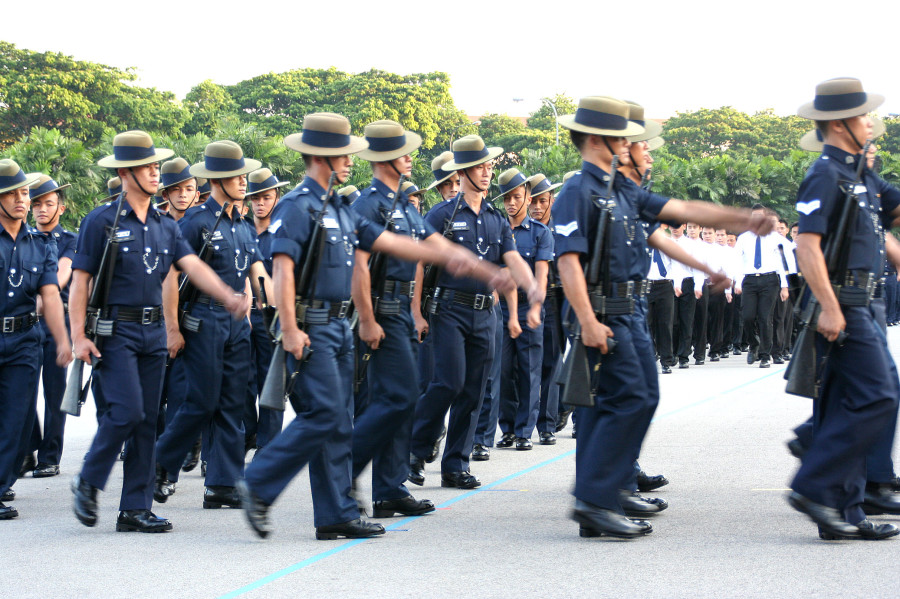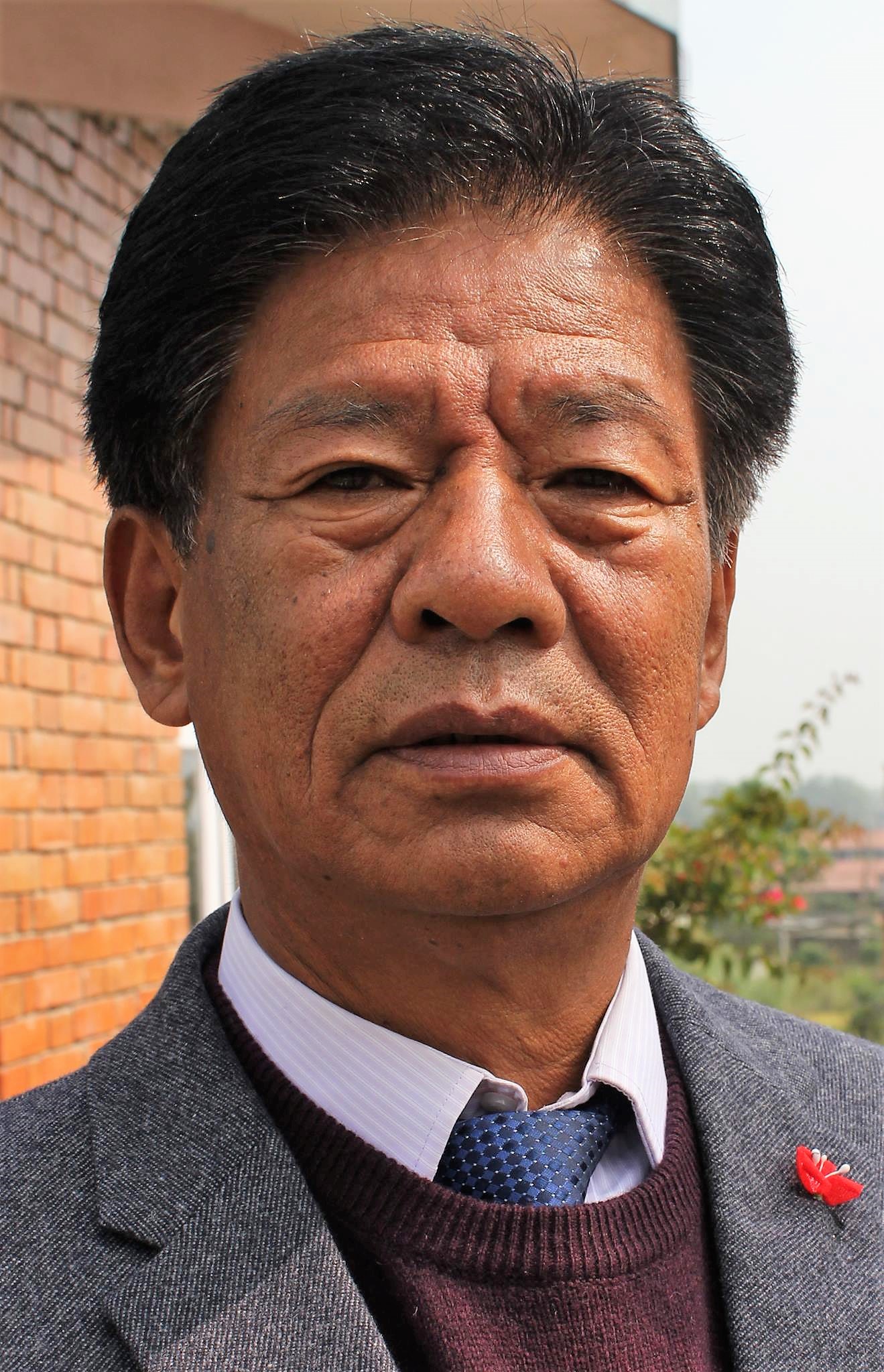Columns
Plight of the Singapore Gurkhas
Gurkhas retired from the Singapore Police Force are forced to live in dire economic conditions.
Om Gurung
The Sugauli Treaty signed between Nepal and the East India Company in 1816 set the historical context of Gurkha recruitment in the British Indian Army. After the independence of India in 1947, the British and Indian governments signed another agreement and persuaded Nepal to sign it. The tripartite treaty formalised the division of the Gurkha regiments between Britain and India. The British deployed the Gurkhas in their colonies Singapore, Malaysia and Hong Kong.
Singapore had established the Sikh regiment as part of the Singapore Police Force. The Sikh regiment reverted to the Indian Army following Indian independence. The Singapore government then instituted the Gurkha Contingent on April 9, 1949 and made a secret deal with the British government to recruit Gurkhas from Nepal for the contingent. Since then, the British government has been managing the recruitment of Gurkhas for the Singapore Police Force. Currently, nearly 2,000 Gurkhas are serving in the Singapore Police Force. Their primary duty was to provide security to the president, prime minister and essential places and installations. In the 1950s and 1960s, they were used to quell communal riots between Chinese and Malays of Singapore. After September 11, 2001, their duties were expanded to other areas.
Unwavering service
The government and people of Singapore highly value the Gurkhas for their impartial and unwavering service in Singapore. The Gurkhas are proud of it and happy with their service in Singapore. However, for the last several decades, rumblings of unhappiness have come to the surface among Gurkhas who have retired and returned to Nepal. They are paid less than their Singaporean counterparts. Except for a one-time revision in 1991, their pay and pension have never been reviewed and revised to match inflation in Nepal.
The result is that retired Gurkhas are forced to live in dire economic conditions or look for another job. Their wives are not allowed to work in Singapore as per their qualifications, so they have no chance to learn new skills and develop their careers other than being a housewife. Widows whose husbands died before 1986 receive a meagre Singapore $250 welfare allowance from the self-help fund generated by serving Gurkhas in the Singapore Police Force. Their children are not allowed to stay in Singapore and continue their education upon the retirement of their fathers. They return to Nepal with their parents and find it difficult to cope with Nepali culture and society because of their upbringing in a different cultural environment and education system. This leads them to social alienation and often results in family problems and career breakdowns. Retired Singapore Gurkhas do not receive adequate medical facilities in Nepal.
During their active service period, they are provided with medical benefits through the Medisave-cum-Subsidised Out Patient scheme. After retirement, they are provided with a Medical Benefits Identity Memo on an ad hoc basis for treatment in designated polyclinics or hospitals in Singapore. However, this scheme is not practical for the retired Gurkhas who cannot remain in Singapore and have either returned to Nepal or sought work in a third country. Singapore Gurkhas are entitled to British Gurkha Welfare Trust medical benefits, but they are not adequate as they do not cover major medical expenses. Singapore Gurkhas who are injured in accidents during active service or are medically discharged do not get pension or benefits from the Singapore government. Singapore Gurkhas are not allowed to marry Singaporean girls or other girls who hold foreign passports other than Nepal.
Singapore Gurkhas have tried to address the issue of pension through their formal organisation the Singapore Police Gurkha Association. In 2005, they wrote a letter to Home Minister of Singapore Wong Kan Sen with a seven-point charter of demands. They emphasised an adjustment of pensions, particularly matched with the inflation rate in Nepal, and pensions for the widows of Gurkhas. But the home minister returned the letter to the Gurkha Contingent commander-in-chief without any official comments or opinions.
Singapore Gurkhas have organised themselves under the banner of the British Gurkha Ex-Servicemen Organisation's Department of Singapore Gurkhas and started a movement against the multiple discrimination and disparities they are suffering. They have raised a 16-point charter of demands, one of which is the abolition of the tripartite agreement that ensures all Gurkhas fair treatment equal to nationals of Singapore with whom they serve in the Singapore Police Force. Instead of the tripartite agreement, they want Nepal to sign a bilateral labour agreement with Singapore if the Singapore government wants to recruit Nepali youths for its police force.
List of demands
Their other demands include legal identification of their national status; equal pay and pension for Gurkhas and their widows; work permits for spouses and eligible children; annual revision of pay and pension; permission for children to stay in Singapore for higher education; citizenship to Singapore-born Gurkha children; adequate medical facilities for Singapore Gurkhas and their families in major hospitals in Nepal; and appropriate compensation and regular pension for those who became physically unfit to work due to serious accidents during their service or have been medically discharged. They also want compensation and regular pension for Singapore Gurkhas who have been discharged and sent back empty-handed based on unproven allegations; residential visas and work permits for Singapore Gurkhas in Singapore or the United Kingdom; and freedom to choose their life partners from any international community.
They have submitted this petition to British Prime Minister Boris Johnson through the ambassador in Nepal. They have also submitted their petition to Prime Minister Sher Bahadur Deuba and heads of the major political parties who are in the coalition government. The British Gurkha Ex-Servicemen Organisation's Department of Singapore Gurkhas has also submitted a petition with their demands to the foreign minister, chair of the National Human Rights Commission, chairs of the parliamentary International Relations and Human Rights Committees, and the ambassador of Nepal to the United Kingdom. The political and diplomatic initiative to redress the grievances of Singapore Gurkhas is another blow to British imperialism, pushed to face up to the issue of ex-Gurkhas of the British Army, who had otherwise remained quiet and loyal to them during the entire period of their service.




 22.25°C Kathmandu
22.25°C Kathmandu















